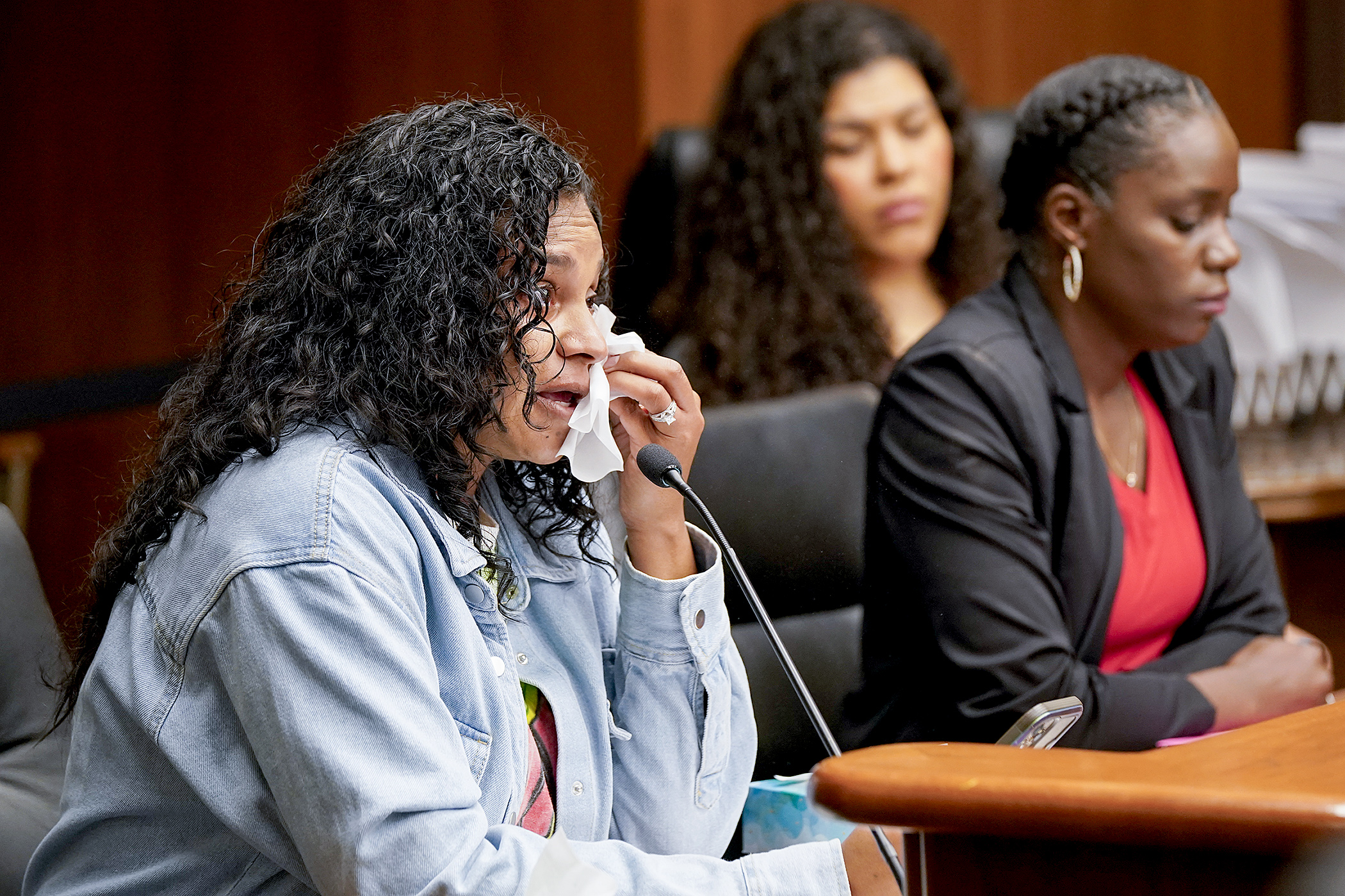House panel gives go-ahead to basic income pilot program

Supporters believe providing a basic monthly income to those who need it removes barriers to full-time employment, provides families a financial safety net and improves outcomes for children.
Opponents say giving people monthly payments with no strings attached creates opportunities for fraud and is an irresponsible use of taxpayer dollars.
A bill approved, as amended, on a split-voice vote Tuesday by the House Children and Families Finance and Policy Committee would attempt to settle that argument. But those answers come with a significant cost.
The bill’s next stop is the House Human Services Finance Committee.
Sponsored by Rep. Athena Hollins (DFL-St. Paul), HF2666 would implement a basic income program to provide direct cash payments of at least $500 per month for 18 to 24 months to eligible recipients around the state. It would be paid for with a one-time $100 million appropriation from the General Fund in fiscal year 2025.
Hollins said the bill would build upon similar programs in the state and around the country.
“This is a pilot program … targeted at Minnesotans receiving public benefits or with an income at or below 300% poverty guidelines,” she said.
The payments are intended to “disrupt” poverty, build wealth and advance equity, in addition to supporting a recipient’s basic needs. The money could not be included when determining eligibility for other public assistance programs but is intended to supplement and not replace those benefits.
Mercedes Yarbrough is a participant in a guaranteed income program started in 2022 by the City of St. Paul to provide more than 300 low-income families with $500 monthly payments for two years. She said it helped her family persevere after her brother was shot and needed care that required her husband to take time away from work.
“I am immensely grateful for the support it has provided to my family when we needed it the most,” she said.
The bill would direct the Department of Human Services to award competitive grants to local and tribal governments along with nonprofit organizations that would, in turn, create and implement customized basic income programs.
At least one independent research-based entity would be chosen to evaluate the program and an annual report to the agency would be required along with a report due to the Legislature by January 2027.
Rep. Walter Hudson (R-Albertville) outlined several concerns with the bill including a lack of safeguards as to how nonprofits would spend the money or who would get it, noting language that explicitly forbids grantees to require recipients to provide other proof of income, residency, citizenship or other identifying information.
“This program very explicitly would provide support to illegal immigrants or persons claiming to be someone other than they actually are,” Hudson said. “We’re not even going to question that, there’s not going to be any documentation whatsoever.”
Hollins said the program will be most effective if it extends to all members of a community, whether documented or not, and that including a variety of people with different experiences and backgrounds is necessary to gain a full understanding of its impact.
“All of those things are important so we can distill that information and figure out how to best implement something like this in the future if we wanted to do something at a statewide level,” she said.
Related Articles
Search Session Daily
Advanced Search OptionsPriority Dailies
Ways and Means Committee OKs proposed $512 million supplemental budget on party-line vote
By Mike Cook Meeting more needs or fiscal irresponsibility is one way to sum up the differences among the two parties on a supplemental spending package a year after a $72 billion state budg...
Meeting more needs or fiscal irresponsibility is one way to sum up the differences among the two parties on a supplemental spending package a year after a $72 billion state budg...
Minnesota’s projected budget surplus balloons to $3.7 billion, but fiscal pressure still looms
By Rob Hubbard Just as Minnesota has experienced a warmer winter than usual, so has the state’s budget outlook warmed over the past few months.
On Thursday, Minnesota Management and Budget...
Just as Minnesota has experienced a warmer winter than usual, so has the state’s budget outlook warmed over the past few months.
On Thursday, Minnesota Management and Budget...